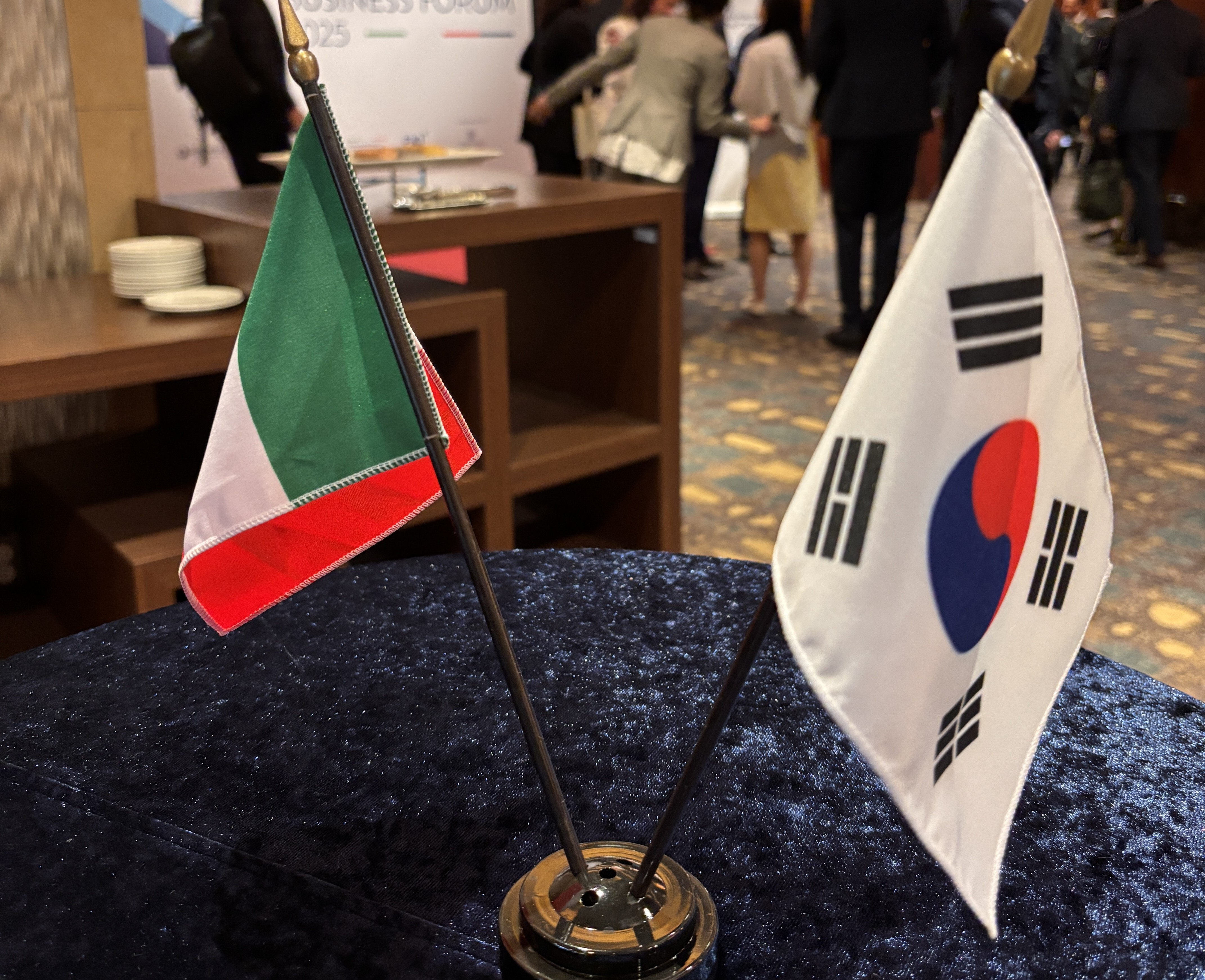How to Establish a Company in Korea for Foreigners?

Unlock the potential of South Korea's thriving economy by establishing your business here. With streamlined processes and a supportive environment, starting a company in South Korea is straightforward. From selecting the ideal legal structure to managing taxes and recruitment, our guide simplifies the process. Join the ranks of successful businesses in South Korea and seize your opportunity for growth and innovation today.
Considerations for Establishing a Business in Korea
When embarking on the journey of establishing a company in South Korea, one crucial aspect is to have a well-defined vision for the executive board of your prospective enterprise. Clarity regarding the number of shareholders and directors is paramount from the outset of the registration process.
Prospective entrepreneurs often inquire about the expenses associated with company setup in South Korea. Beyond the initial registration fees, it's important to factor in the investment capital required to be deposited in a local bank. With no mandated minimum social capital requirement, investors enjoy autonomy in determining their capitalization. Typically, the entire formation process takes no longer than two weeks.
Ranked as the 15th largest economy globally by nominal gross domestic product (GDP) and the 12th by purchasing power parity (PPP), South Korea presents compelling reasons for investment. Its economy is recognized as both stable and high-income, positioning it as a member of the Next Eleven countries, indicative of strong growth potential in the coming years. Despite challenges such as limited natural resources and a dense population, South Korea presently stands as the world's seventh-largest exporter and tenth-largest importer. For guidance in navigating the intricacies of starting a business in Korea, our team of Korea company registration consultants is at your service.
Minimum Share Capital Requirement and Specific Criteria for Foreign Investors in Korea
South Korea presents a notable advantage for aspiring entrepreneurs: there exists no mandated minimum share capital for establishing a private company. However, it's crucial to determine an appropriate capitalization based on the industry sector in which the company will operate. Our business registration agents in South Korea stand ready to offer guidance in this aspect.
For foreign investors aiming to retain full control over their businesses in Korea, several registration options are available:
- Establishment of a local company
- Formation of a branch office by a foreign entity
- Setup of a liaison office designated for a foreign enterprise
These categories of companies are governed by Foreign Direct Investment laws and are subject to specific requirements. In the case of local companies, a minimum investment of KRW 100 million, approximately USD 90,000, is required.
Incorporation procedures vary slightly, beginning with the requirement to notify the Foreign Direct Investments Board of the intent to establish the company. Additionally, obtaining an entrepreneur visa is essential, facilitating the later acquisition of a Korean residence permit.
Businesses not yet registered in Korea but conducting operations or employing local staff may need to register and submit reports to Korean tax authorities. We strongly recommend seeking expert advice from our accountants in South Korea to ensure effective and accurate tax planning before venturing into the Korean market.
For visitors to South Korea intending to stay exceeding six months, obtaining alien registration cards is typically necessary. These cards serve as a form of personal identification for expatriates in Korea, providing a Resident Registration Number essential for tasks such as opening bank accounts or registering with local healthcare providers. Moreover, obtaining an alien registration card marks the initial step toward securing permanent residency in South Korea.
Taxation Factors for Businesses in Korea
If you're considering launching a business in South Korea, it's essential to factor in taxation responsibilities. Local businesses are subject to corporate tax on their global earnings, while foreign-owned enterprises, like branch offices, are taxed solely on their Korean income. They must submit audited tax returns annually.
Corporate tax rates vary depending on profit levels:
- 10% on profits up to KRW 200 million per year
- 20% plus KRW 20 million on profits ranging from KRW 200 million to KRW 20 billion
- 22% plus KRW 3,980 million on profits between KRW 20 billion and KRW 300 billion
- 25% plus KRW 65,580 million on profits exceeding KRW 300 billion
South Korea's government prioritizes foreign investment, implementing regulations to facilitate ease of operation for overseas business owners. These benefits include financial aid and tax advantages, such as cash grants, which can also streamline immigration to South Korea.
Recruiting Overseas Workers in Korea
In Korea, foreign workers fall into two primary categories:
- Foreign migrant workers (holding E-9 visas): These individuals are part of the Employment Permit System and typically work in sectors such as construction, manufacturing, agriculture, and related fields.
- Foreign professional workers (holding E1 to E7 visas): These individuals possess specialized expertise, including roles such as college educators, researchers, industry experts, and English instructors.
Korea's Employment Permit System encompasses the E-9 visa for non-professional roles, targeting foreign workers in basic skilled positions, and the H-2 visa for ethnic Koreans residing overseas. For comprehensive information on these visa categories, our team of advisors specializing in Korean company formation can offer detailed insights. Additionally, we assist with company setup in Korea.
This system was established to introduce stability to sectors facing significant labor shortages while simultaneously safeguarding the domestic labor market.
Varieties of Business Entities in Korea
The choice of legal structure for organizing a business entity in South Korea is closely linked to the size and nature of the company. Whether aspiring to sole ownership or partnership with local and foreign investors, entrepreneurs have several options available through the Korean legal framework. Among the most prevalent legal forms for establishing a company in Korea are:
- General Partnership (Hapmyeong Hoesa)
- Limited Liability Partnership (Hapja Hoesa)
- Joint Stock Corporation (Chusik Hoesa)
- Limited Liability Corporation (Yuhan Hoesa)
It's important to note that when establishing a private business in South Korea, the use of the term "hoesa," which translates to "corporation," in the company name is not permitted.
Steps to Establishing a Company in Korea
Launching a company in South Korea involves several essential procedures. Once you've determined the most suitable legal structure, the following steps are typically required:
- Reserve the desired trading name for the company.
- Prepare the Articles of Association, particularly for private and public companies.
- Submit these documents, along with other necessary paperwork, to the Companies Register.
- Open a company bank account with a chosen financial institution.
- Obtain a tax identification number.
- Apply for any required licenses pertinent to the industry of operation.
Regardless of the chosen entity type, it must have at least one shareholder and one director. Notably, there are no citizenship or residency prerequisites for these positions if the individuals do not reside in Korea.
Typically, the registration process with the Trade Register in Korea takes approximately two weeks. However, additional time may be required for bank account setup and licensing procedures, extending the timeframe before the company can commence operations. Generally, it takes about three weeks to establish and approve a company bank account.
Conclusion
South Korea presents an energizing and welcoming environment for entrepreneurs aiming to launch their enterprises. With efficient procedures and a conducive atmosphere, establishing a company in South Korea is a seamless undertaking. Whether you're managing legal frameworks, tax matters, or recruitment processes, our thorough guidance streamlines the journey and paves the way for success. As you venture into this dynamic market, grasp the chance to tap into the immense potential of South Korea's flourishing economy and become part of its thriving business community.
Reach out to us for the necessary support and preparation, as your business endeavor in South Korea promises abundant prospects for expansion and creativity.
.png?width=1656&height=121&name=rsz_%EB%A1%9C%EA%B3%A0%ED%88%AC%EB%AA%85%20(8).png)

